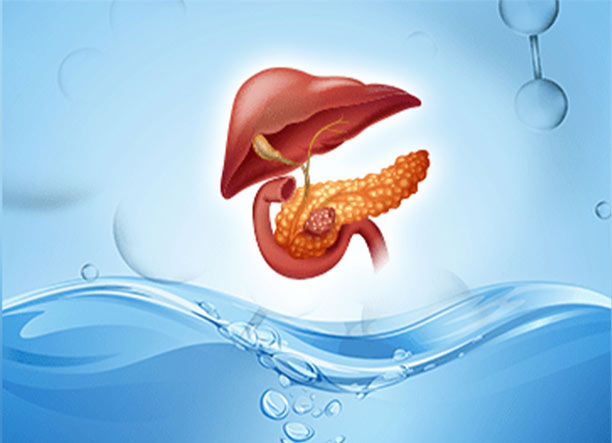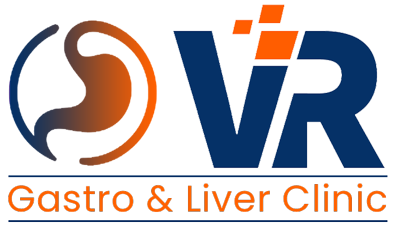Proper hydration is crucial for maintaining overall health, and it plays a particularly vital role in supporting liver function. The liver is one of the body's most essential organs, responsible for various critical processes, including detoxification, protein synthesis, and the production of biochemicals necessary for digestion. Here, we explore why hydration is so important for liver health and how staying properly hydrated can support liver function.

What is the role of the liver?
The liver performs over 500 functions vital to life, but its primary role is detoxification. It filters toxins from the blood, metabolizes drugs, and converts harmful substances into safer, excretable forms. Additionally, the liver is involved in the production of bile, which aids in digestion and absorption of fats and fat-soluble vitamins.
Hydration and liver function
Detoxification
Hydration aids the liver's detoxification processes. Water is a key component of the blood, and having sufficient water in the body ensures that blood flow to the liver is optimal. This efficient blood flow is essential for the liver to filter and remove toxins effectively. Dehydration can slow down this process, allowing toxins to accumulate and potentially cause damage to liver cells
Bile production
The liver produces bile, which is necessary for digestion. Water is a significant component of bile, and adequate hydration ensures that bile production is optimal. Without enough water, bile can become too concentrated, leading to the formation of gallstones and other digestive issues. Hydrated bile helps in the smooth digestion and absorption of nutrients
Metabolism
The liver plays a crucial role in metabolism, including the metabolism of carbohydrates, proteins, and fats. Water is necessary for metabolic processes and chemical reactions within the liver. Proper hydration supports these metabolic functions, helping the liver to efficiently process nutrients and convert them into energy
Cellular health
Liver cells, like all cells in the body, rely on water to function correctly. Hydration maintains the health and integrity of liver cells, enabling them to perform their functions effectively. Dehydration can lead to cellular stress and damage, impairing the liver's ability to carry out its tasks.
What are the symptoms of dehydration?
Dehydration can manifest in various ways that indicate stress on the liver. Some signs include
Fatigue
The liver requires water to metabolize nutrients into energy. Dehydration can lead to decreased energy levels and overall fatigue
Digestive issues
Insufficient water can result in concentrated bile, leading to digestive discomfort and potential gallstone formation
Toxin buildup
Without adequate hydration, the liver's ability to filter toxins diminishes, which can cause a buildup of harmful substances in the body
How to maintain proper hydration?
Maintaining hydration is relatively simple but requires conscious effort. Here are some tips to ensure adequate hydration for liver health
Drink plenty of water
Aim for at least eight 8-ounce glasses of water per day, known as the "8x8" rule. However, individual needs may vary based on body size, activity level, and climate
Eat hydrating foods
Incorporate foods with high water content into your diet, such as cucumbers, watermelon, oranges, and lettuce. These can contribute significantly to your daily hydration needs
Limit dehydrating substances
Minimize the intake of caffeine and alcohol, as these can lead to dehydration. If consumed, ensure you drink extra water to compensate for their diuretic effects
Monitor urine color
A simple way to gauge hydration is by checking the color of your urine. Pale yellow indicates good hydration, while dark yellow or amber suggests you need to drink more water.
Hydration is a fundamental aspect of maintaining liver health. By ensuring adequate water intake, you support the liver's ability to detoxify the body, produce bile, and perform metabolic processes. Recognizing the signs of dehydration and adopting habits to stay well-hydrated can significantly benefit your liver and overall health. Prioritize hydration to keep your liver functioning optimally and maintain your overall well-being
Articles
- Celiac disease vs gluten intolerance
- Differences B/W Endoscopy & Colonoscopy
- What is colon cancer or colorectal cancer?
- How Your Gut Health Affects Your Whole Body
- Gas Pain in Chest: Causes, Treatment, and More
- How junk food affects liver health
- The role of probiotics and prebiotics in gut health
- What is indigestion or dyspepsia?
- Why is hydration so important for liver health?
- What are the 5 symptoms of liver disease in women?
- What does alcohol do to your body?
